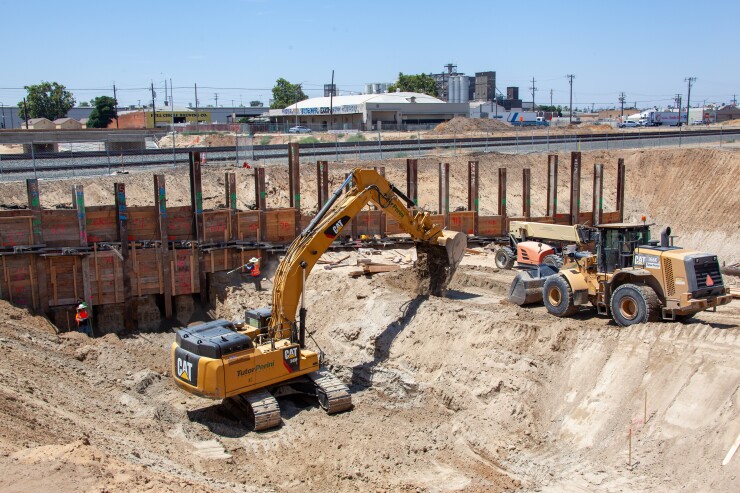California's controversial high-speed rail project cleared a major milestone Thursday when the authority overseeing the project approved final environmental clearance for the final, and possibly the most challenging, segment of the route.
The California High-Speed Rail Authority's approval of a
The 38-mile segment, between Palmdale and Burbank, covers some of the most difficult terrain of the entire project. It requires 30 miles of tunneling, including 28 miles through mountains, according to the authority. Trains will be underground through much of the Angeles National Forest and the San Gabriel Mountains National Monument, the authority said. The price tag is estimated at $28.6 billion, a 27% increase over 2018 estimates, according to
The total cost of the nation's only publicly-funded high-speed rail project is now estimated at $128 billion, and faces major funding gaps. The full route's shortfall is as high as $99 billion, and the initial Merced to Bakersfield segment, with an estimated $35 billion price tag, faces a potential $7 billion gap,
The project was initially funded in 2008 with a $9.9 billion bond issue to help fund what was then envisioned as a $33 billion system between San Francisco and San Diego.

The authority in May applied for a $450 million federal Consolidated Rail Infrastructure and Safety Improvements grant that would advance an 8-mile extension of the initial Central Valley segment. In December, the Biden administration
The project has long raised the ire of state and national Republicans and other critics, who contend it's a waste of money and will never be finished. In May, a pair of top congressional Republicans
At a June 27 hearing before the House Transportation and Infrastructure Committee, Republicans questioned Transportation Secretary Pete Buttigieg about the administration's support for the project.
"Are you capable of recognizing a hopeless boondoggle?" asked Rep. John Duarte, R-Calif.
"I've seen a lot of the most compelling and ambitious human projects characterized as hopeless boondoggles during the time that they were taking shape," Buttigieg said. "I'm not surprised for a project that represents the first movement in the United States of America toward this kind of technology that it has proven to represent a lot of challenges for those first movers."





